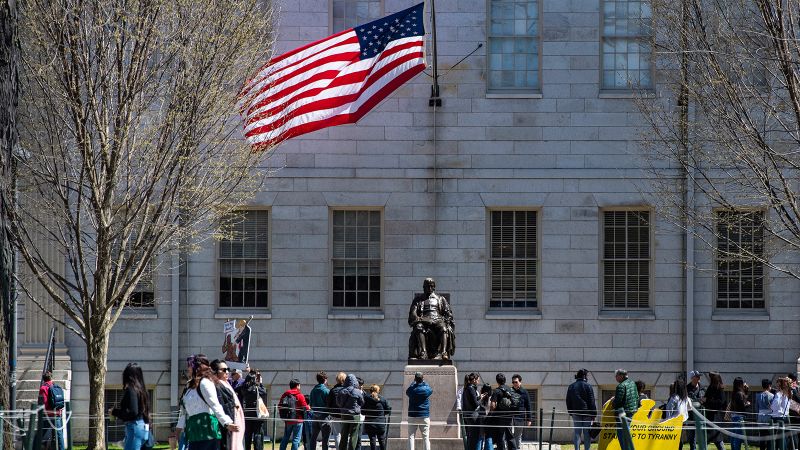The recent announcement by Secretary of State Marco Rubio regarding an investigation into Harvard University by the US State Department has stirred significant controversy. The investigation primarily concerns Harvard’s “continued eligibility as a sponsor for the Exchange Visitor Program,” which facilitates the arrival of foreign scholars, researchers, and students to the United States under J-1 visas. This move is viewed as a strategic escalation by the Trump administration against the prestigious Ivy League institution amidst ongoing legal struggles that aim to restrict the university’s ability to host international students.
In his statement, Rubio emphasized that the investigation aims to ensure that State Department programs remain aligned with national interests. However, he offered minimal details about the specific nature of the investigation, leaving many aspects clouded in ambiguity. Critics have pointed out that the administration’s scrutiny of Harvard is part of a broader trend of actions perceived as punitive towards institutions that the administration deems to be misaligned with its policies or priorities.
This scrutiny did not come out of the blue. The Trump administration initially revoked Harvard’s Student and Exchange Visitor Program status in May of that year, but a federal judge, Allison Burroughs, intervened to block this decision. Throughout this turbulent period, accusations directed at Harvard have included claims of antisemitism on campus and alleged failures to provide essential information about its international student population to the government. These allegations have fueled the government’s concerns regarding Harvard’s compliance with exchange visitor regulations.
Rubio further elaborated on the responsibilities of sponsors in the Exchange Visitor Program, highlighting the necessity for them to demonstrate a commitment to fostering cultural exchange and mutual understanding. The Secretary emphasized that compliance with established regulations is critical for maintaining the privilege of sponsoring exchange visitors. This insistence on compliance underscores the administration’s stringent approach and its belief that universities like Harvard must take accountability for the environments they cultivate, particularly when it comes to matters of national security and law.
The ongoing investigation specifically targets individuals at Harvard holding J-1 visas—essentially professor, researcher, and specialist roles—distinct from the F-1 visa program, which caters directly to international students and is administered by the Department of Homeland Security. Harvard has publicly asserted its commitment to upholding the regulations governing the Exchange Visitor Program, with spokesperson Jason Newton stating that the university continually supports its international community, allowing them to apply for U.S. visas and travel to campus undeterred.
Contrastingly, the university has expressed concerns that the investigation represents a retaliatory tactic against it, framing it as an infringement on its First Amendment rights. This defense underscores the tension between academic institutions and government oversight, particularly in a climate where universities frequently serve as arenas for political and social discourse.
Moreover, it’s worth noting that the Trump administration is tightening scrutiny over not just universities but also applicants for student and exchange visas. A recent directive from the State Department indicated that applicants must make their social media profiles public, ostensibly to facilitate enhanced vetting processes. This directive extends further, instructing consulates to assess visa applicants for “hostile attitudes” towards the U.S., which raises questions about civil liberties and the implications for international educational exchange.
Earlier in the week, Harvard was involved in a separate legal battle regarding more than $2 million in federal grants, claiming that the Trump administration had mismanaged legal protocols. Judge Burroughs, who is overseeing both the funding case and the current investigation into Harvard’s Exchange Visitor Program, has yet to disclose when she will make a ruling on the matter.
In summary, the ongoing investigation into Harvard University by the US State Department is emblematic of a broader confrontational stance by the Trump administration toward academic institutions, particularly those that appear resistant to its policies. As the situation evolves, it not only raises critical questions about the future of international student programs but also challenges the balance between national security interests and academic freedom.











